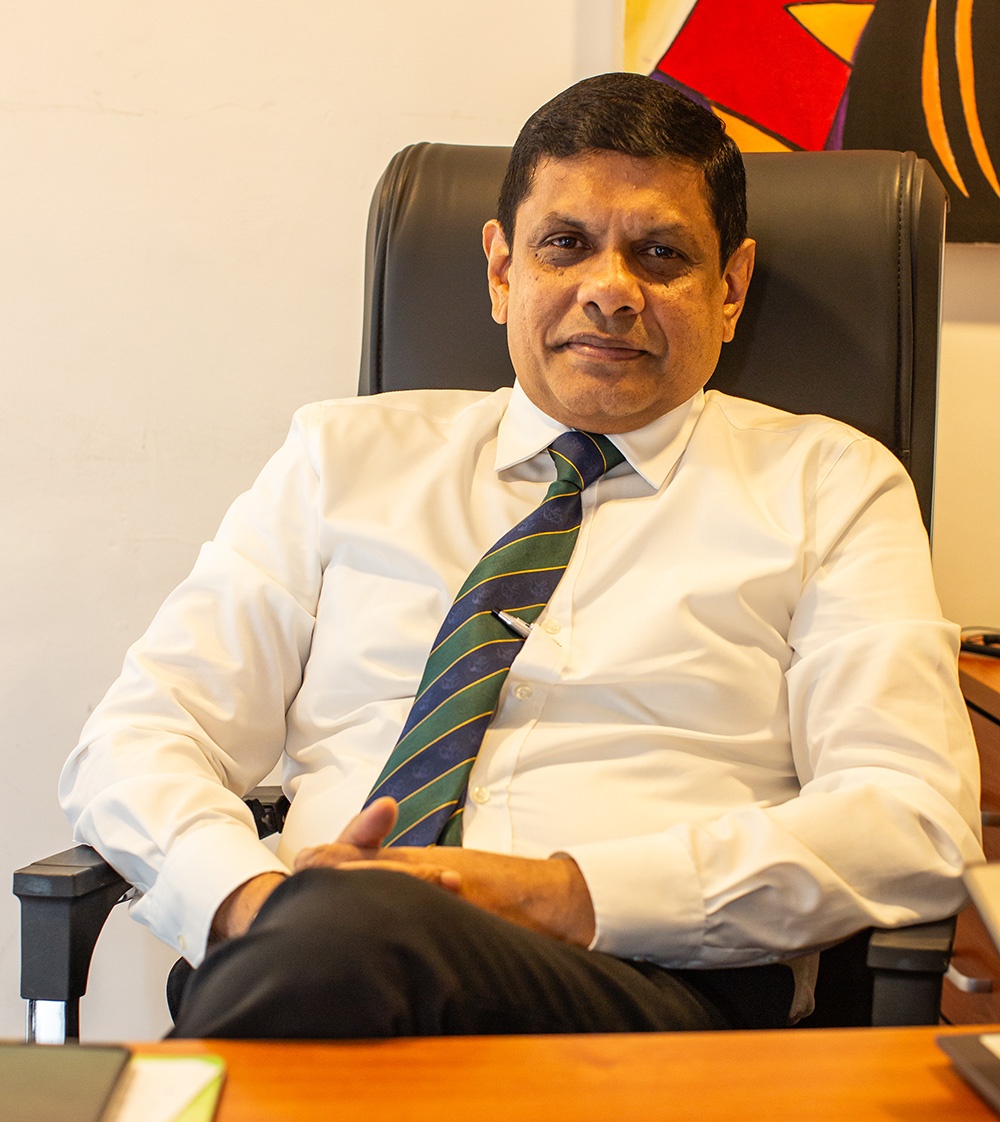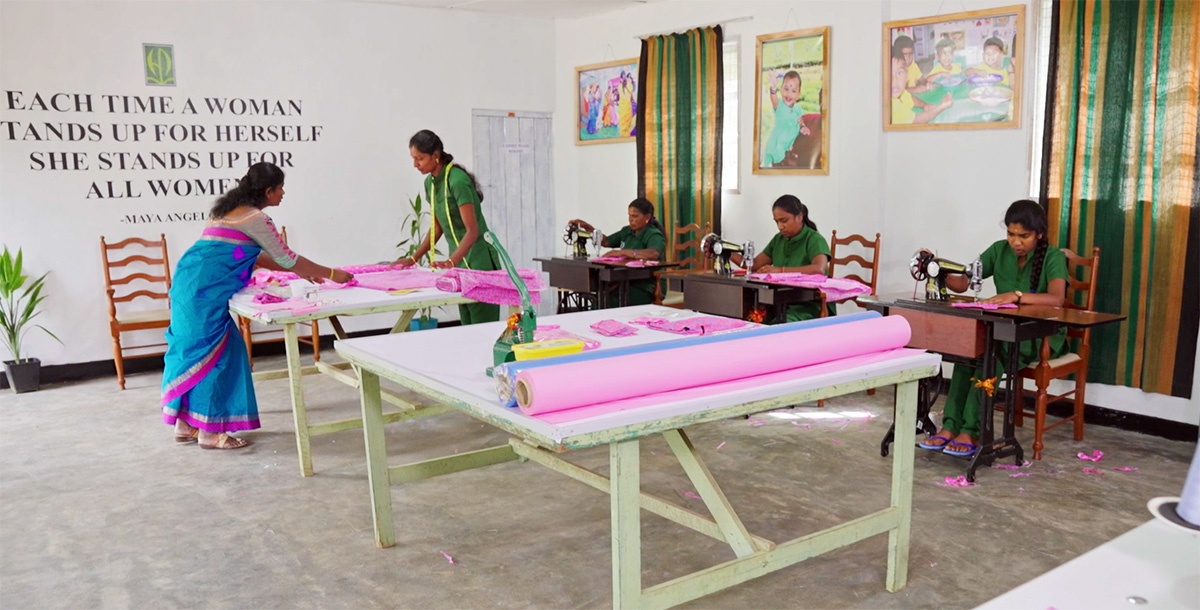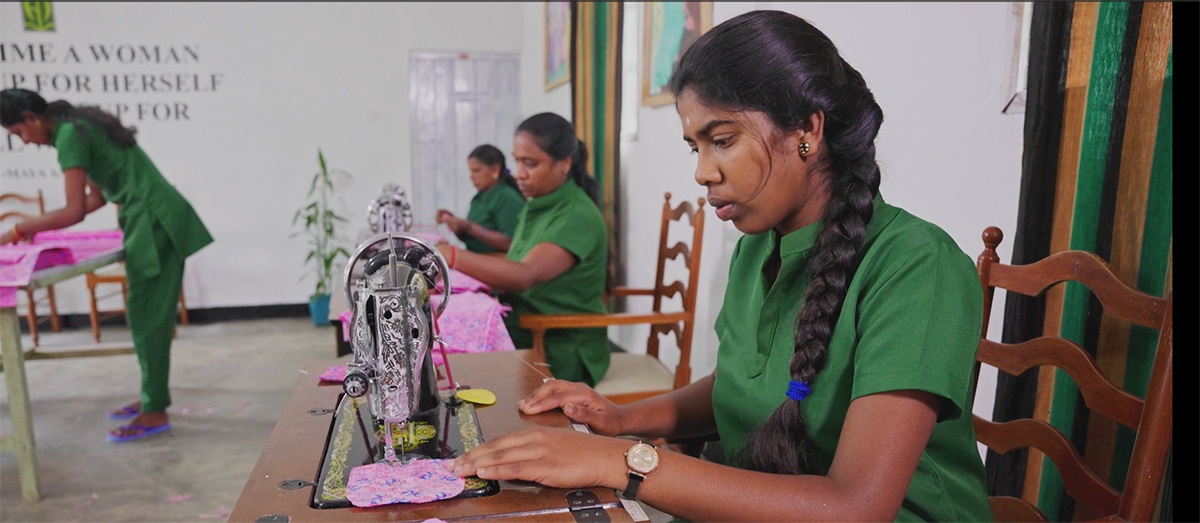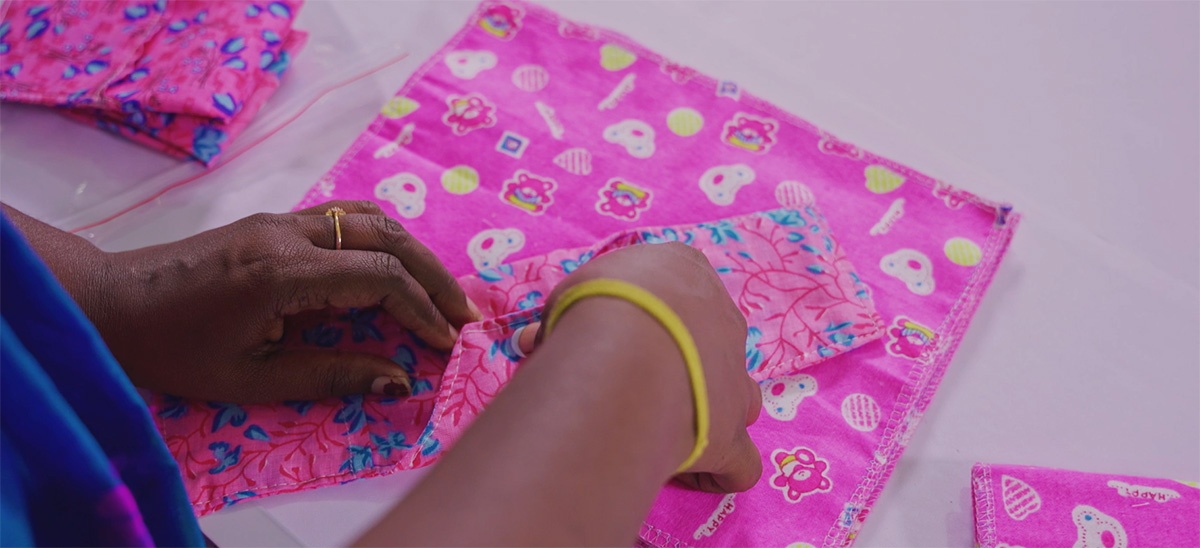
An informed and innovative new initiative by Horana Plantations PLC was judged one of the winners of the first round of the Seal Challenge 2023. It addresses a crucial but generally overlooked challenge faced by girls and women in Sri Lanka’s plantation communities.
Defined as the lack of access to menstrual products, hygiene facilities, and waste management, period poverty is compounded by a lack of awareness of menstrual hygiene and health. It impedes the well-being of girls and women – and their ability to achieve their full potential. It can also worsen existing social inequalities.

“I started thinking about the problem more closely when taxes were being introduced on sanitary napkins. The customs duty was reduced due to the public outcry that ensued, but the VAT was increased. There was no significant drop in the price,” states Johann Rodrigo, Director/Chief Executive Officer of Horana Plantations.
The recent economic crisis in the country saw the island’s poverty rate almost double within the space of one year – from 13.1% in 2021 to 25% in 2022. Inequality also climbed – from 38.1 in 2021 to 39.8 in 2022. These figures are particularly consequential for populations like the historically deprived plantation community, which lags behind both urban and rural sectors in development and well-being indicators such as education and health.
The Horana Plantations PLC decided to address the many aspects of period poverty on the estates holistically so that menstrual hygiene and health would be more easily achieved. This initiative was recognised by the Seal Challenge launched by The Centre for Child Rights and Business to encourage tea companies to submit tangible concept notes for supporting women and children in tea communities. Winners receive a limited funding boost to kickstart the realisation of their ideas.

“The first step was making menstrual products more accessible. I could see that reusable sanitary napkins presented a cost-effective and sustainable solution, and turned to the corporate sector for collaboration. But I made little headway. Wherever I went, all I received were business propositions. They weren’t interested in producing reusable pads. That wasn’t a priority,” says Johann Rodrigo.
Then, an introduction by The Centre for Child Rights and Business to the Women’s Development Centre (WDC) in Kandy, an NGO focused on empowering women, resulted in a positive outcome. Sashi Stephen, WDC’s Executive Director remarks:
“We wanted to work in the plantations because women lacked choice – socially and economically. We wanted to enable them to live in dignity. WDC formed a partnership with Horana Plantations adopting a sustainable strategy.”
Among the tea estates managed by the plantation company, Alton Estate, with the highest percentage of resident women, was selected as the location for a pilot initiative.
“Women from our estate followed a five-day training course on sewing reusable sanitary napkins at WDC. And now we are producing them here in a space allocated by the estate,” says V. Dusithra, Family Welfare Officer at Alton Estate.
In parallel, renovating an old building, Alton Estate set up a development and resource centre exclusively for girls and women. Doctors make regular visits and talk about different aspects of well-being – including mental health issues. Crucially, it is also a space that addresses people’s lack of awareness and misinformation about menstrual hygiene and health through discussions on the stigma and social exclusion related to menstruation – gradually building dignity and confidence in girls and women.
“What we have now is a product of good quality that people can afford,” says Ponniah Dishanthani, a plantation worker and member of the Pad Production Unit at Alton Estate.
“We have now been introduced to reusable sanitary napkins. If we buy a packet from a shop we have to pay Rs. 425, if we buy the reusable pads, it’s only Rs. 250. And we can use it for an entire year. This is a considerable saving.”

The reusable sanitary napkins are sold in drawstring cloth bags known as ‘dignity packs’. As a next step, the Women’s Development Centre is planning to produce a maternity pack – creating a local market for it. Horana Plantations will replicate this model across the region.
There is much more to be done, however, to provide girls and women on the estates with a safe environment where they can manage menstruation without embarrassment or stigma.
“We would like to work with schools in the region on menstrual hygiene and health issues, but it is not easy. Education officials need approvals at different levels to engage in something like this. We will do the best we can,” says Johann Rodrigo.

The Mother and Child-Friendly Seal for Responsible Business is a collaborative initiative between The Centre for Child Rights and Business, Save the Children, and key stakeholders in the Sri Lankan tea industry. It aims to improve the well-being of families in Sri Lanka’s tea-growing communities through sustainable and meaningful investments by business entities in the tea supply chain (buyers, brands, plantation companies).
More information:
Website: https://childrights-business.org/SealInitiative Email: info.SL@childrights-business.org
By using this website, you agree to our use of cookies. We use cookies to provide you with a great experience and to help our website run effectively.